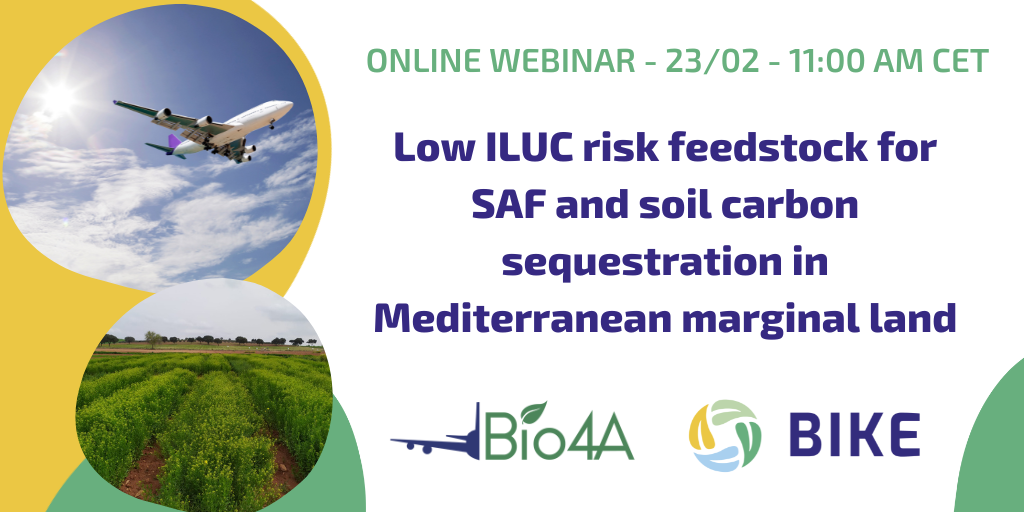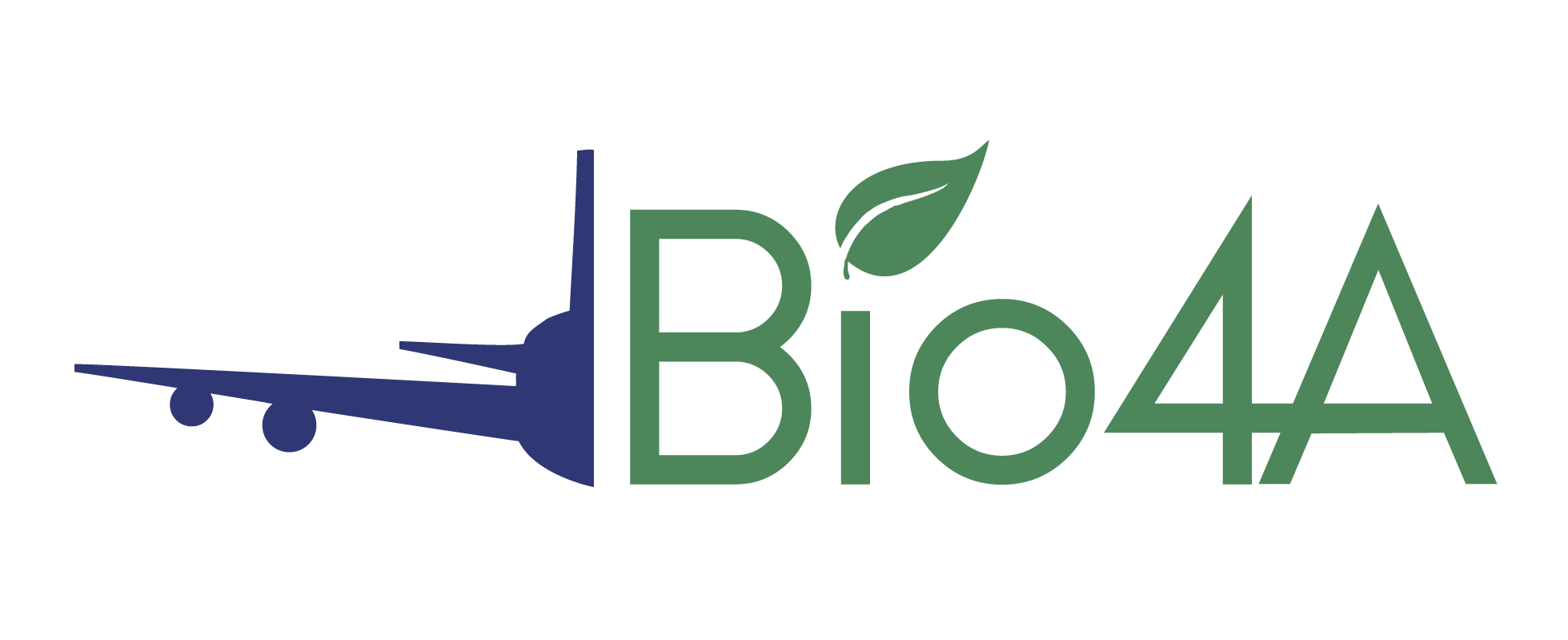
This webinar presented solutions, activities, and preliminary results from Horizon 2020 projects BIO4A and BIKE, for the development of low ILUC risk biomass feedstock for SAF in marginal land in European dry Mediterranean areas.
An assessment study was presented, about the production potential of marginal and underutilized land that is available in Southern Europe and that could be dedicated to growing drought-resistant oil crops for SAF production.
Experiences from multi-annual demonstrations of growing Camelina as an oilseed crop in semi-arid land in Spain will also be discussed, together with the effects on soil health of the application of biochar-based soil amendments, as part of BIO4A project activities. Finally, the agronomic best practices from case studies of different low ILUC risk biomass value chains analyzed by project BIKE were also discussed.
Watch the webinar here.
Download the slides below
Agenda
Welcome and Introduction
Perspectives of low ILUC risk biofuel production systems in Europe – Andrea Salimbeni (RE-CORD)
Mapping the sustainable potential for advanced biofuel production on marginal lands in the EU Mediterranean region – Calogero Schillaci (European Commission Joint Research Centre)
Cultivation of Camelina in semi-arid land with high risk of desertification – Javier Prieto (Camelina Company Espana)
Application of biochar and compost on Camelina crops in semi-arid land: effects on feedstock production and soil health – Tommaso Barsali (RE-CORD)
Best agronomic practices for low ILUC risk biomass feedstock – Efi Alexopoulou (CRES)
